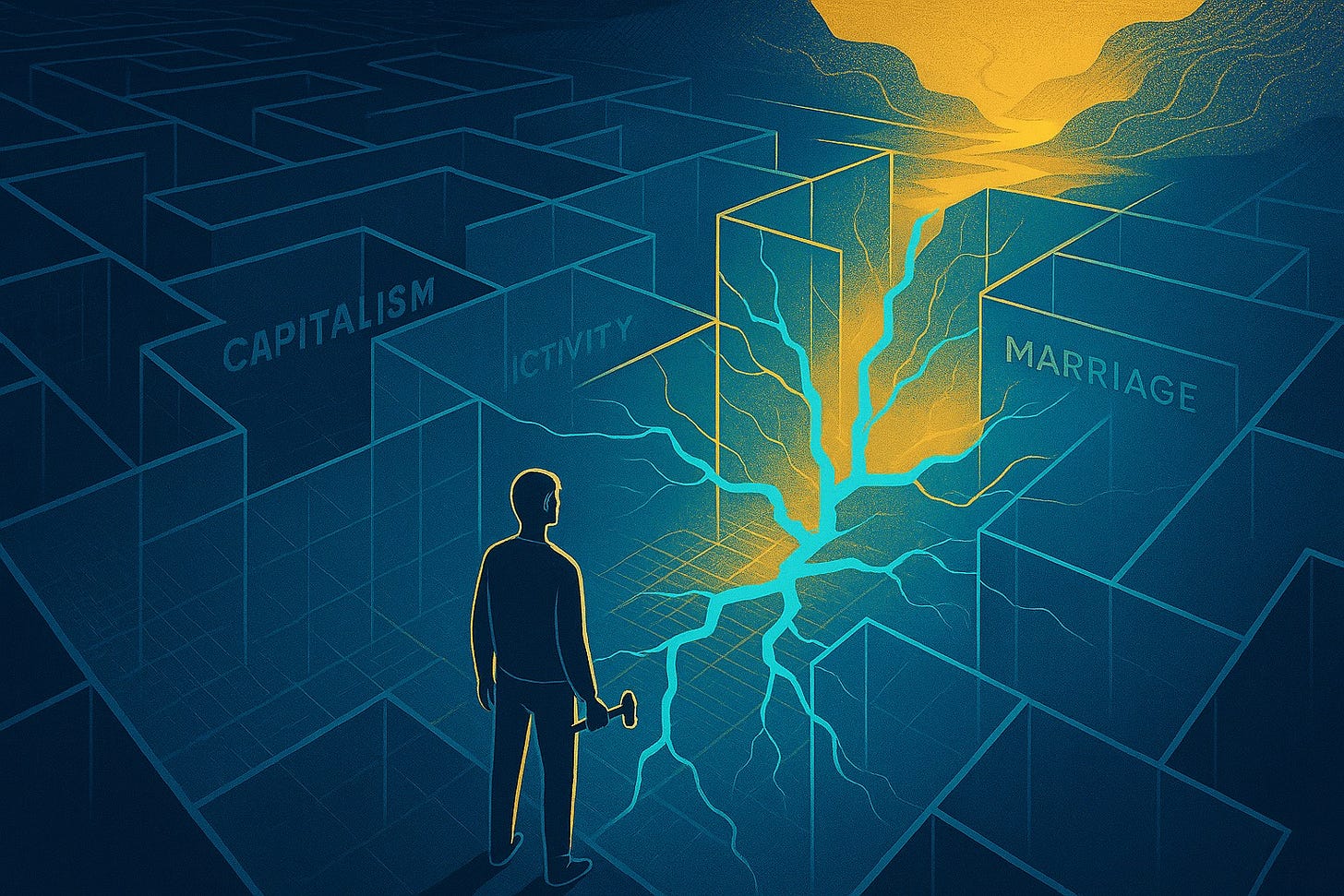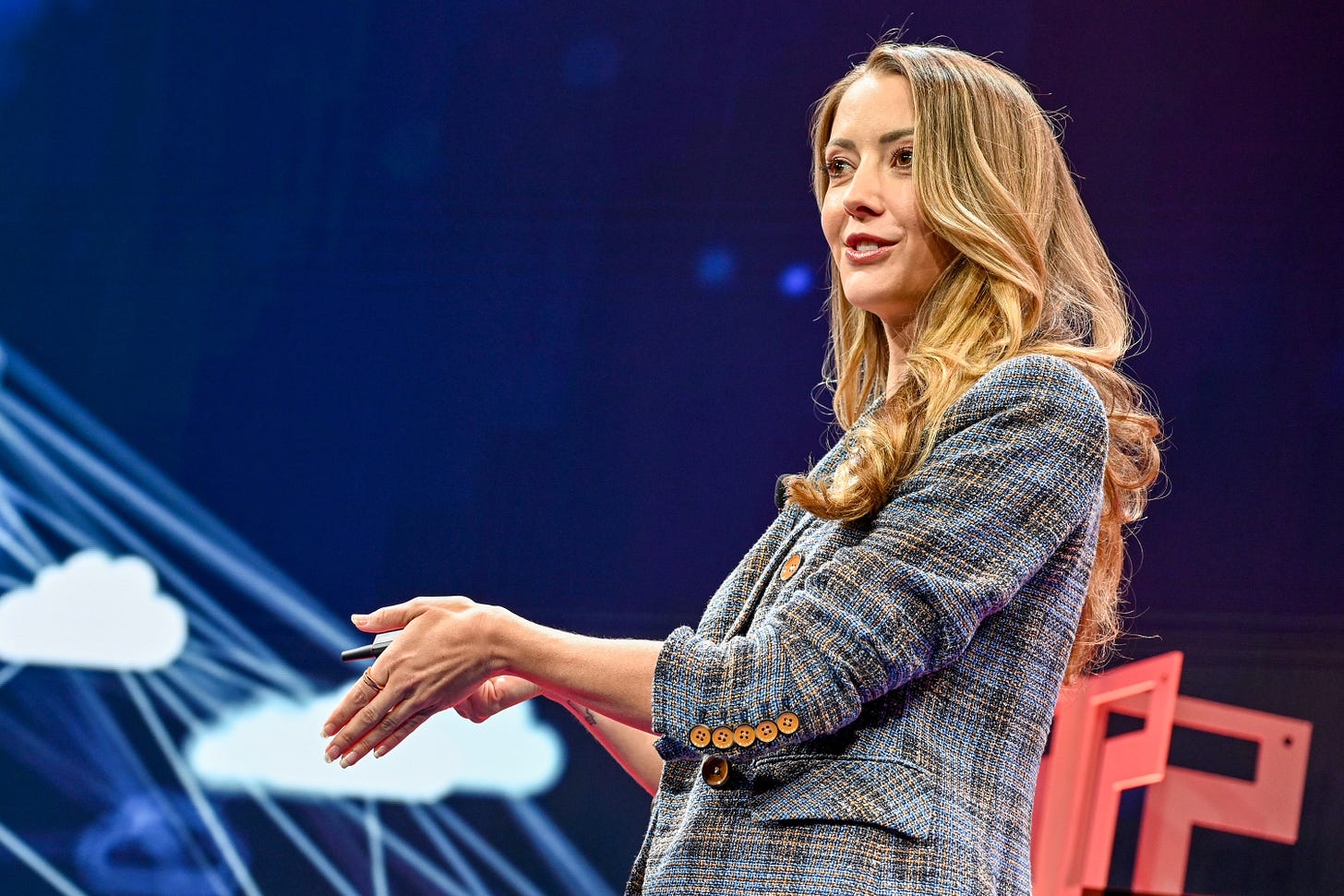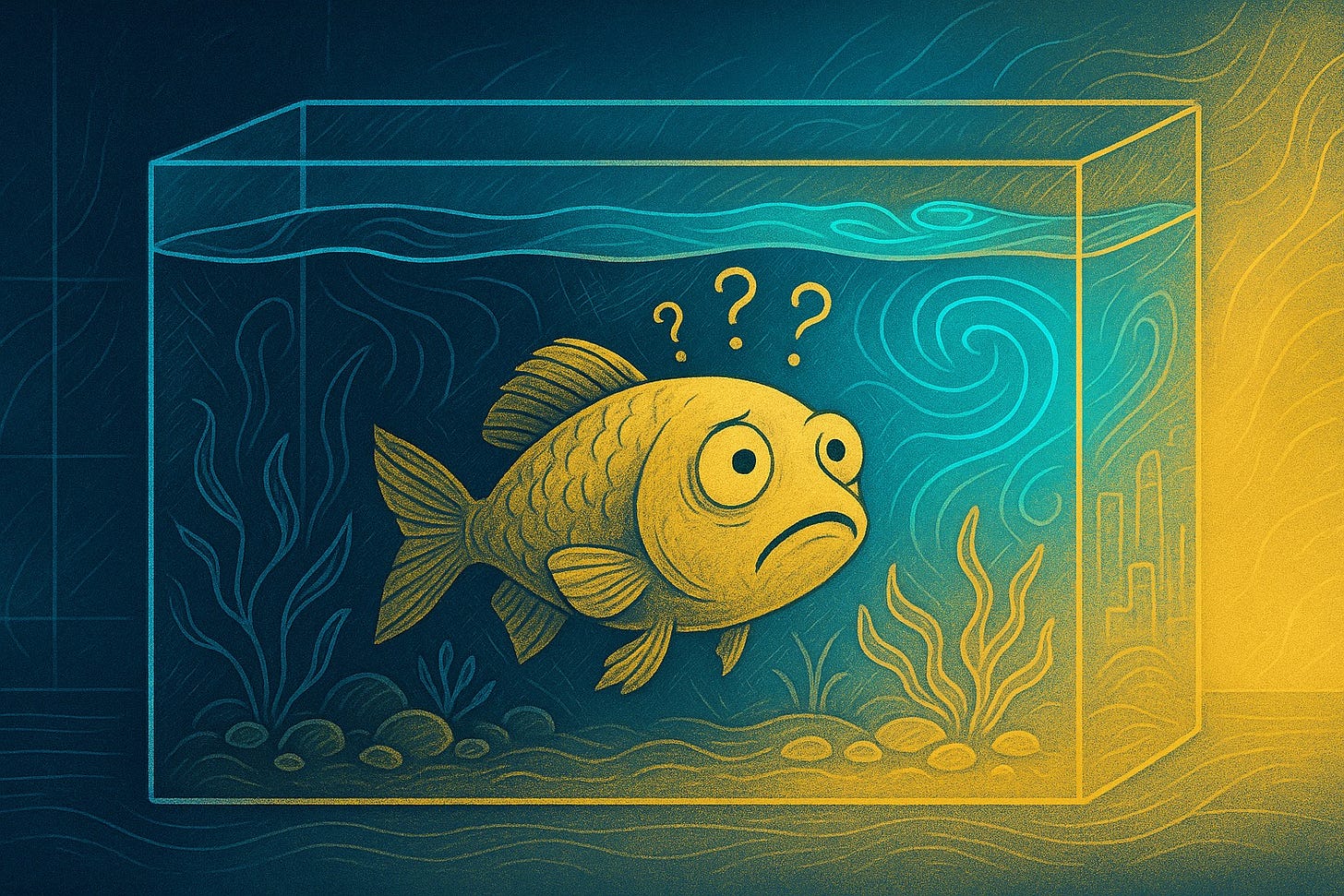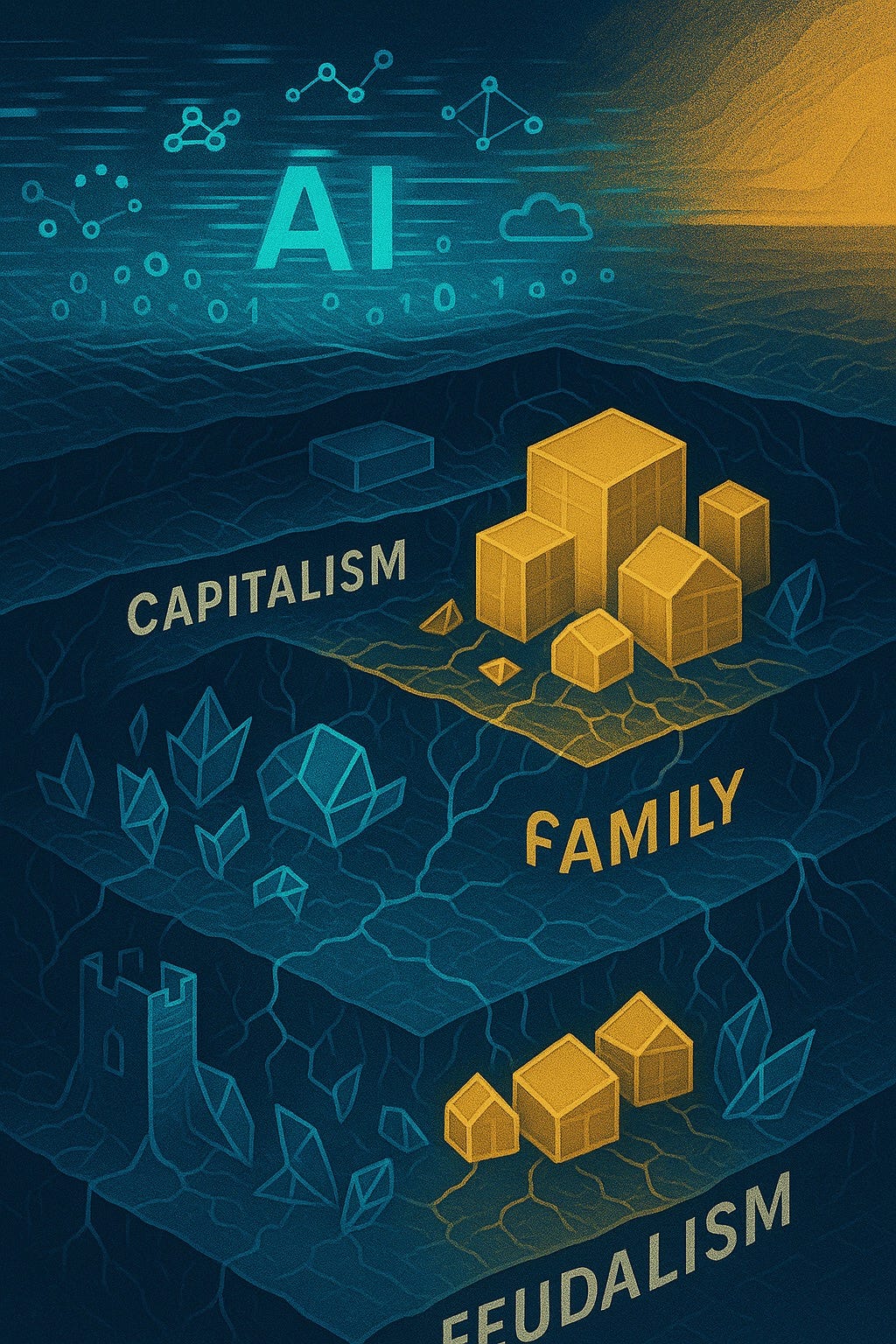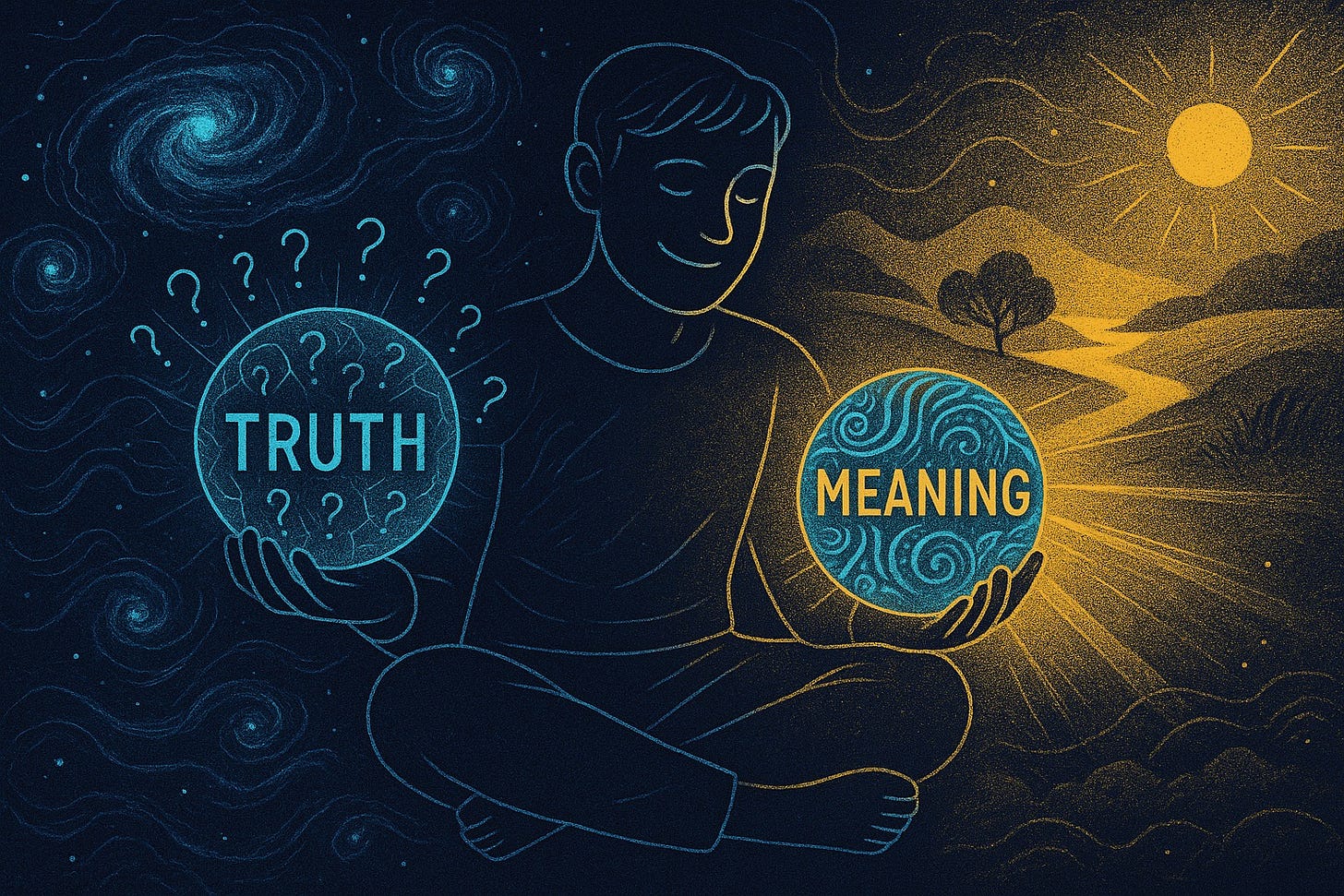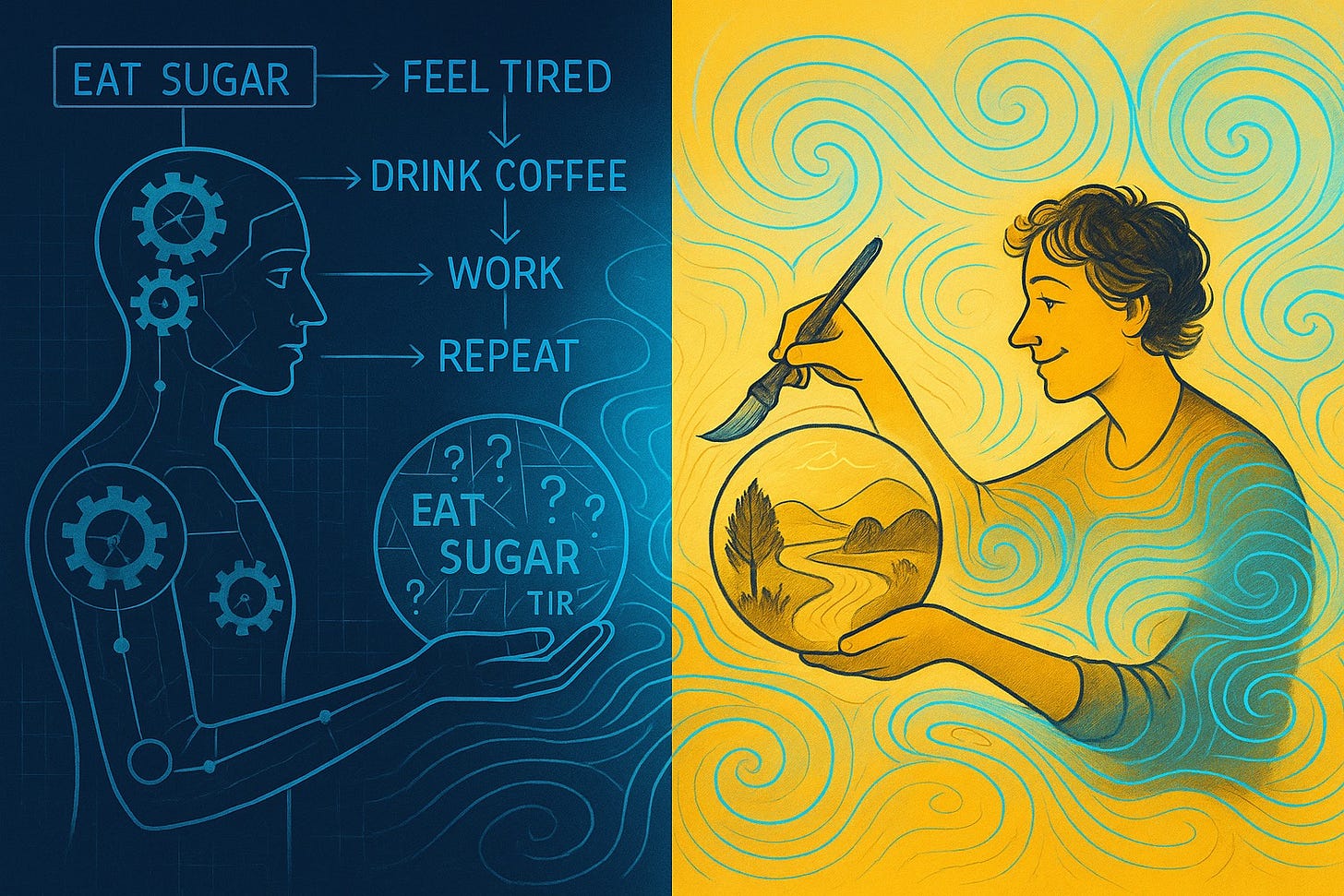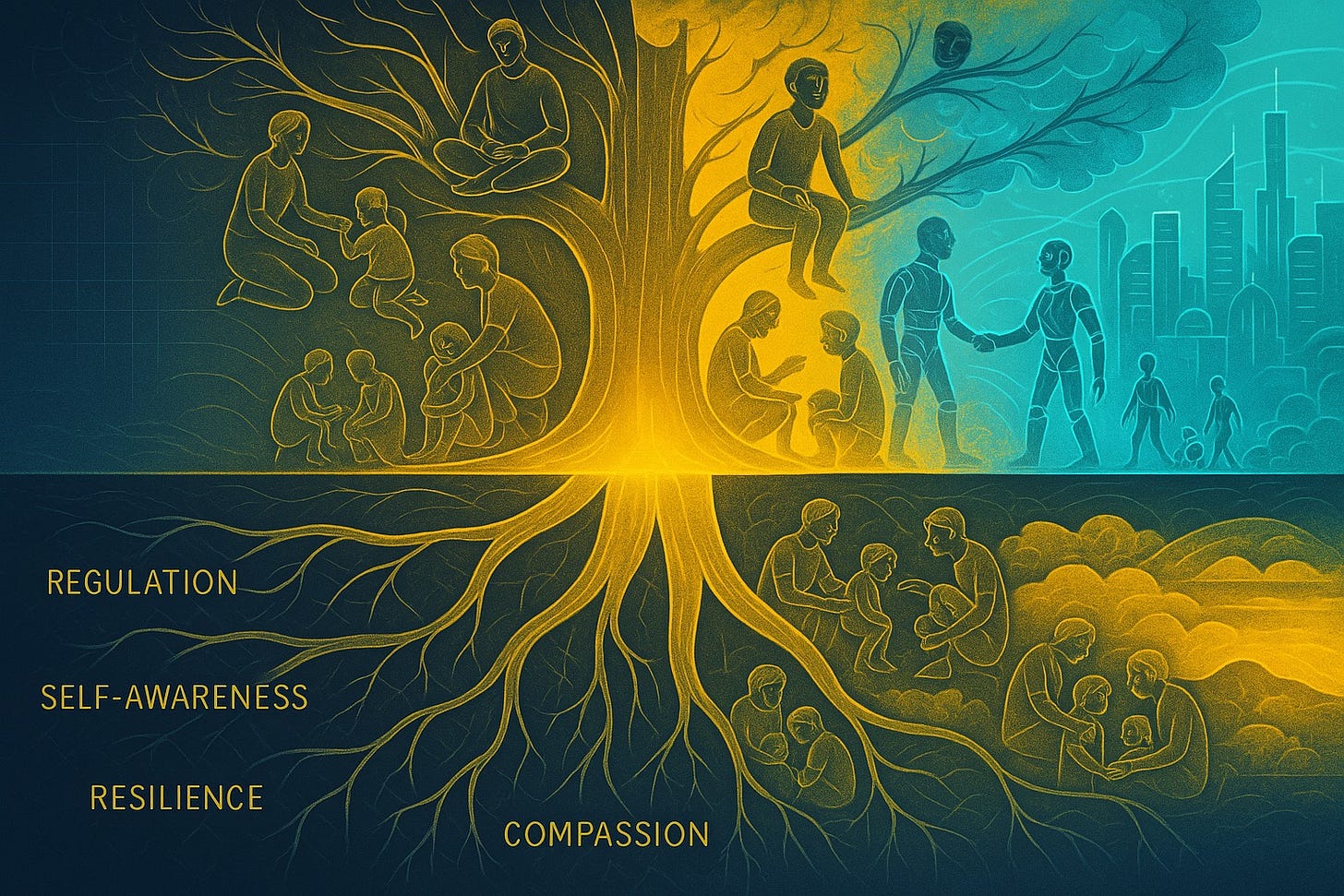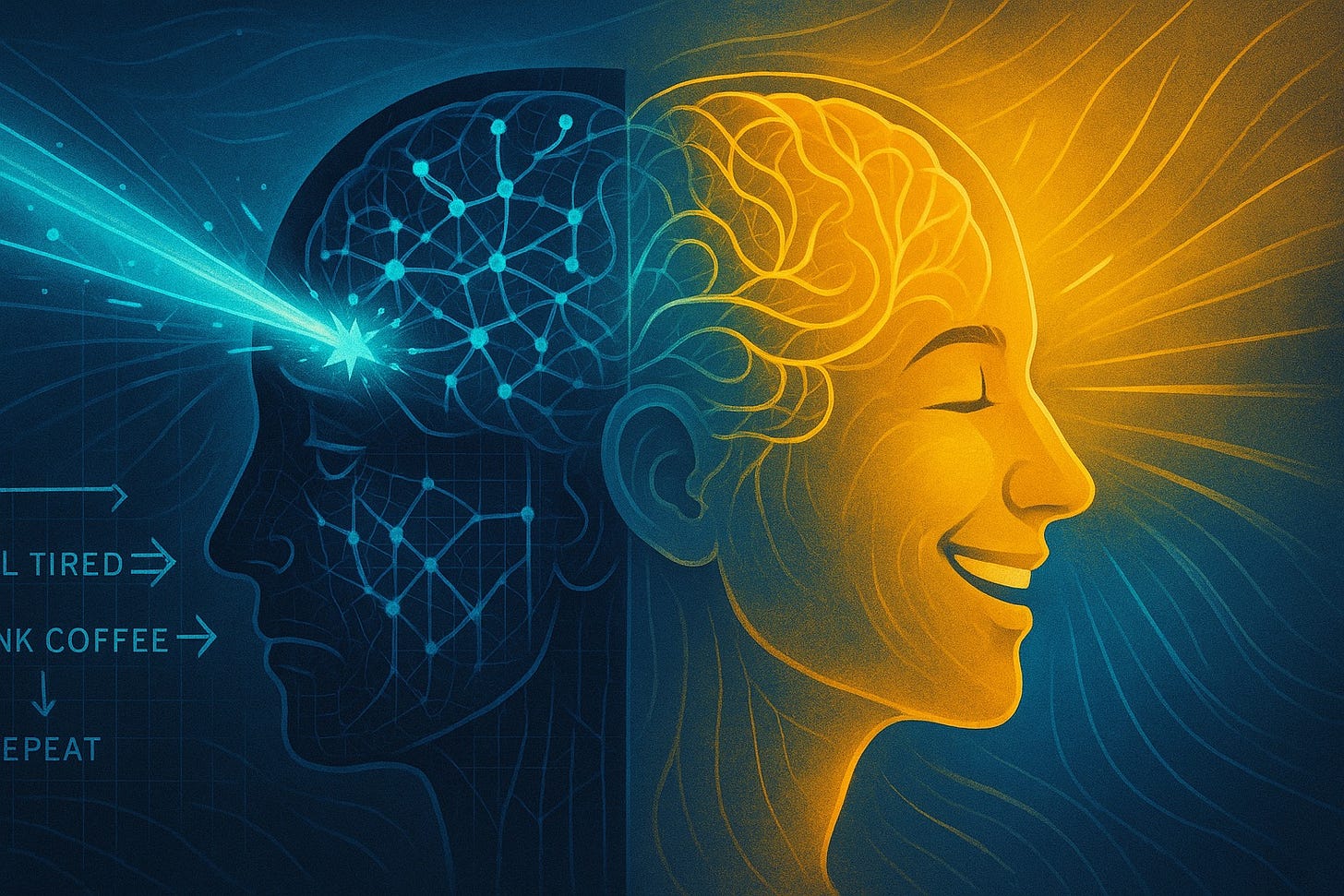Capitalism, marriage, time management, productivity culture—none of it is “truth.” It’s all human-made constructs that we’ve confused for reality. But here’s the twist: once you see this clearly, you can start building your own meaning instead of living by someone else’s algorithm.
I just wrapped up a fascinating conversation with Taryn Southern, a neurotech researcher who’s spent seven years working on brain-computer interfaces.
Her central insight?
We’re all trapped in constructs we mistake for truth, but meaning-making is our escape hatch.
The Construct Trap We All Live In
“Everything in our present reality—capitalism, productivity, time—we confuse them for truth,” Taryn explained. “These constructs shape our life and our choices, and we’re so often unconsciously aware of them.”
Think about marriage. It’s a beautiful idea that two people should sign a contract and stay together forever. But it’s completely made up. Same with capitalism—this notion that financial incentives are the only way humans create and progress. These aren’t natural laws. They’re systems we invented and then forgot were inventions.
The danger isn’t that constructs exist—it’s that we live unconsciously within them, like fish unaware of water.
Why We Keep Making Stuff Up (And Why Some Stick Around)
Humans are meaning-making machines. We’ve been trying on different constructs for thousands of years, and the “fittest” ideas survive—kind of like Darwin’s theory applied to social systems.
But here’s where it gets interesting: technology is moving so fast that our institutions can’t keep up. We’re about to face a reckoning where we’ll be forced to examine all these invisible systems governing our behavior and ask:
“Is this the world we actually want to live in?”
Taryn’s prediction? We’re heading toward a period where many of our core systems will need rapid restructuring. The question is whether we’ll do it consciously or let it happen to us.
The Meaning-Making Paradox That Changes Everything
Here’s where Taryn’s thinking gets really provocative. She doesn’t believe there’s any inherent meaning in the universe—which sounds dark until you flip it around.
“I think the power is almost knowing that there’s no inherent meaning and yet choosing to imbue meaning anyway,” she said. “That is actually what makes humans different from any other species—our ability to meaning make.”
This creates a belief paradox: even if you know a belief isn’t “true,” choosing to believe it can still transform your reality.
When Taryn’s friends tell her “the universe is working for you,” she knows it’s just a belief. But she also knows that believing it will cause her to act in ways that make it functionally true.
The belief doesn’t need to be real to be powerful.
From Algorithm to Art: How to Escape the Machine
Right now, most of us are living algorithmically. Input-output, input-output. Eat sugar, feel tired. Drink too much, wake up late. We’re cogs in a massive prediction machine.
But consciousness creates choice. “When we stop and get really conscious about our choices, how we’re showing up in the machine, what we’re doing, what we’re thinking,” Taryn suggests we can build something “extraordinarily different and beautiful and thoughtful.”
The goal isn’t to escape all constructs—it’s to choose them consciously rather than inherit them blindly.
Building Emotional Infrastructure for What’s Coming
One of Taryn’s most practical insights involves what she calls “emotional infrastructure”—building collective emotional regulation, self-awareness, and nervous system resilience.
“We’re accelerating so rapidly through this new world that brings up massive ethical implications,” she warned. Without emotional infrastructure, we won’t be able to navigate the coming changes successfully.
We aren’t just talking about individual therapy—it’s about building systems that help humans stop reacting from wounds and start responding from wisdom.
Your Neural Reality Is More Flexible Than You Think
Perhaps the most mind-bending part of our conversation involved Taryn’s work with brain implants. Parkinson’s patients who get deep brain stimulation don’t just stop tremoring—they often experience renewed motivation, optimism, and energy. One woman told Taryn her favorite part wasn’t regaining motor control, but becoming “so much happier.”
The implications are staggering: your personality, your sense of self, your meaning-making capacity—it’s all more malleable than we assume. Which means the constructs shaping your life are more changeable than they appear.
What You Can Do This Week
Notice one “truth” that’s actually a construct. Maybe it’s the 40-hour work week, the idea that busyness equals productivity, or the belief that you need to optimize everything. Just see it clearly as a human invention, not natural law.
Practice conscious meaning-making. Choose one belief that serves you, even if you can’t prove it’s “true.” Test drive it for a week and notice how it affects your actions.
Build micro-emotional infrastructure. When you feel triggered or reactive, pause and ask: “Am I responding from an old wound or from conscious choice?”
The future belongs to people who can see constructs for what they are while still having the courage to build new ones. We’re not victims of the systems we inherited—we’re artists with the power to sketch new realities.
The question isn’t whether you’re living in constructs. You are. The question is: are you going to choose them consciously?
About This Conversation
This article is based on insights from my conversation with Taryn Southern on the Rethink Reality podcast, where we explore how the biggest ideas in technology, consciousness, and human potential are reshaping what it means to be alive.
If you enjoyed these insights, I’d encourage you to listen to our full conversation. We dove much deeper into topics like brain-computer interfaces, the neuroscience of belief, split-brain consciousness, and Taryn’s predictions for home robotics. Plus, you’ll get to hear Taryn’s thoughts on everything from serial killer psychology to why your cat might have multiple personalities.
Listen to the full episode:
• Spotify
• YouTube (search “Rethink Reality Podcast - Taryn Southern”)
Follow Taryn Southern on Instagram @tarynsouthern for more insights on using AI and neuroscience to reclaim your dreams and live more intentionally.
Subscribe to the Rethink Reality podcast wherever you get your podcasts to join more conversations about the ideas reshaping our world.




